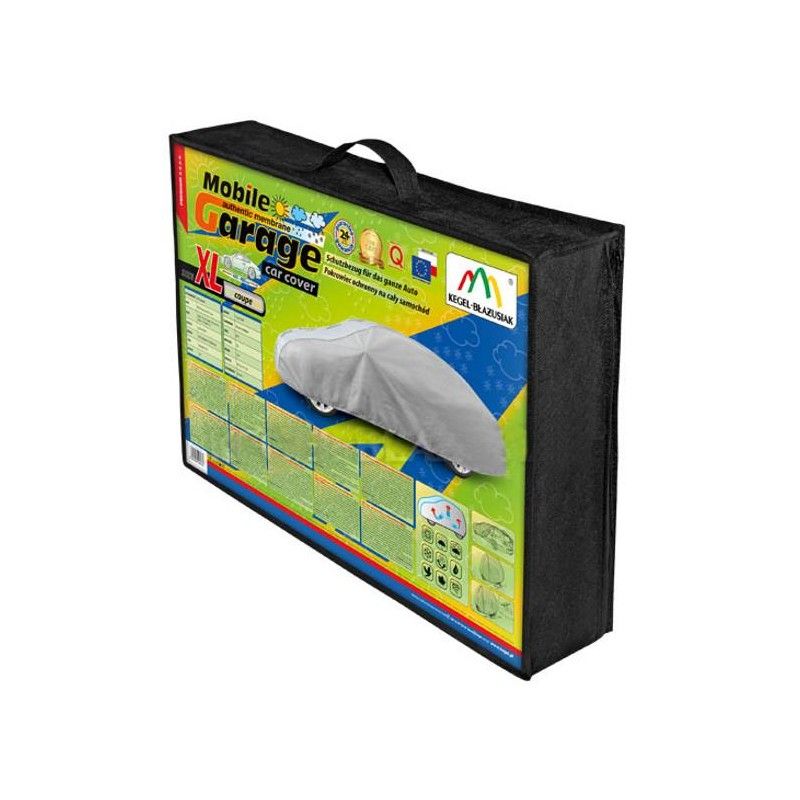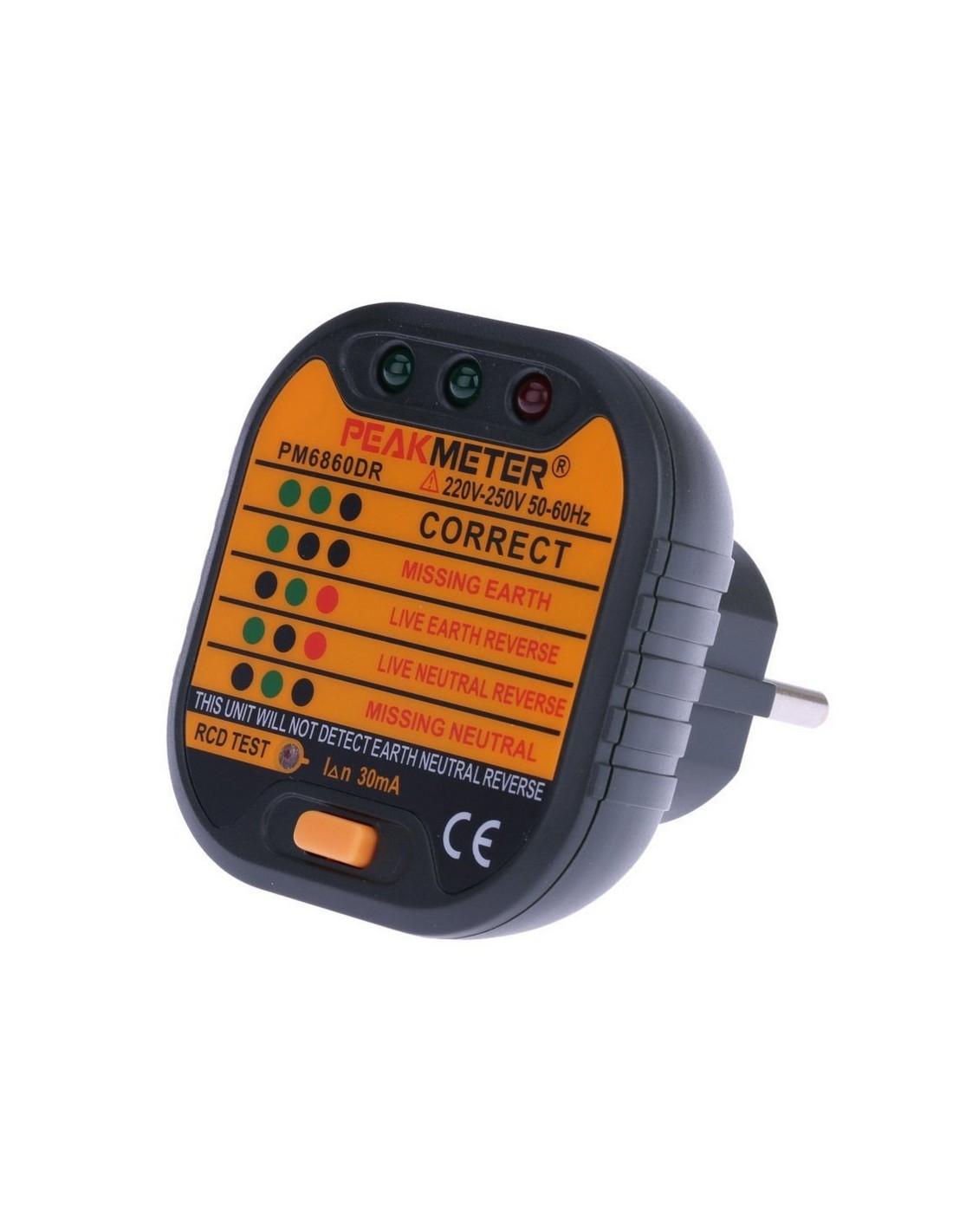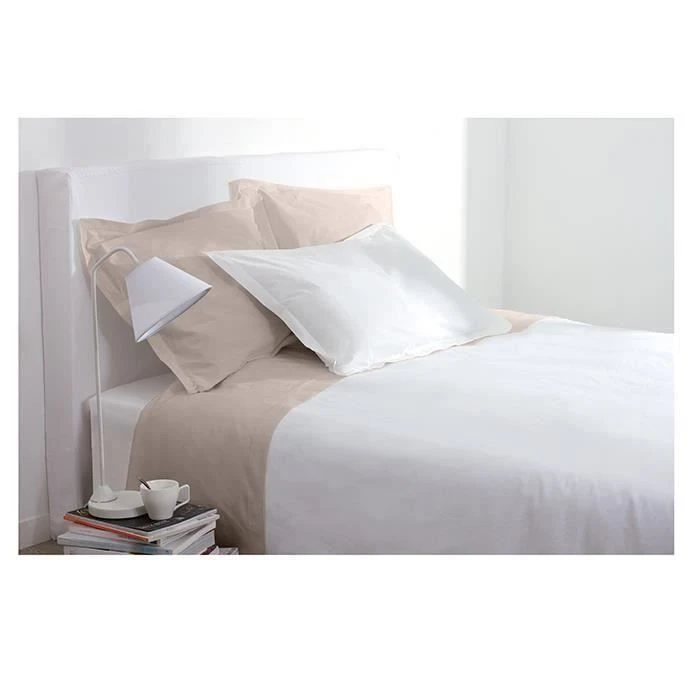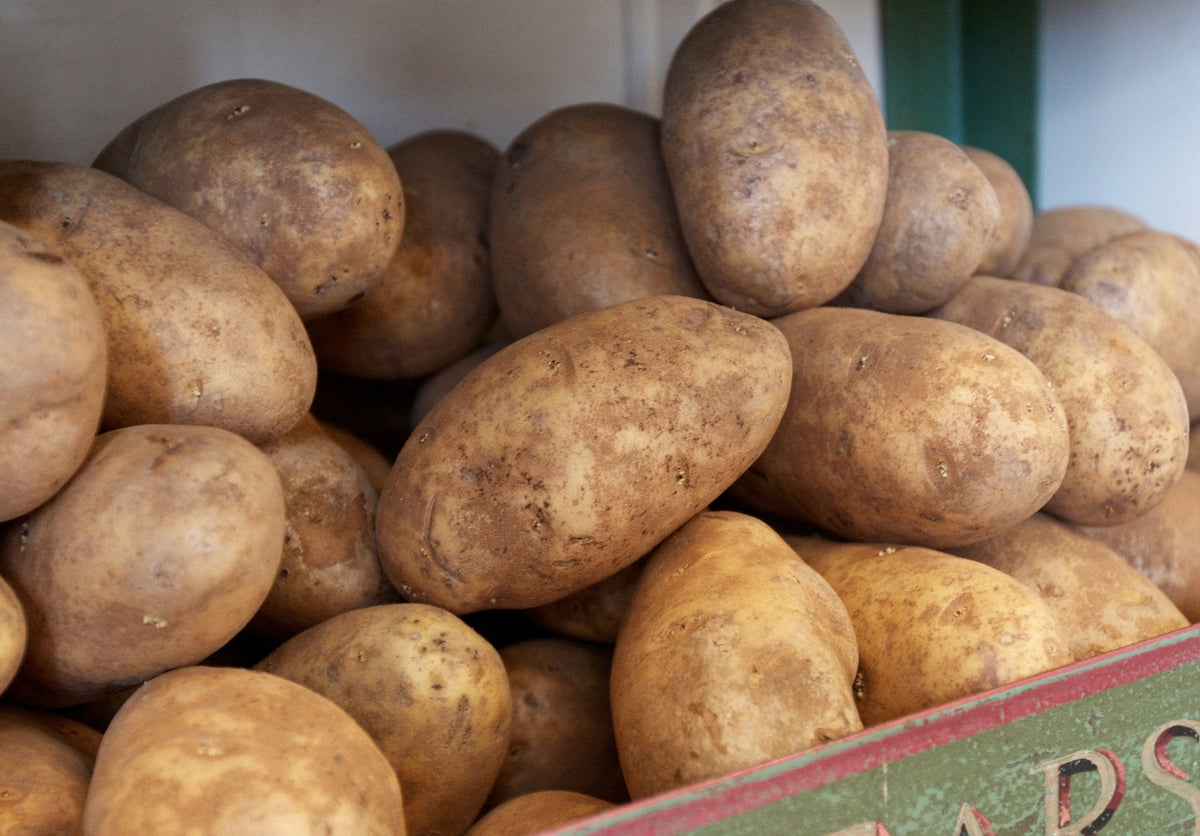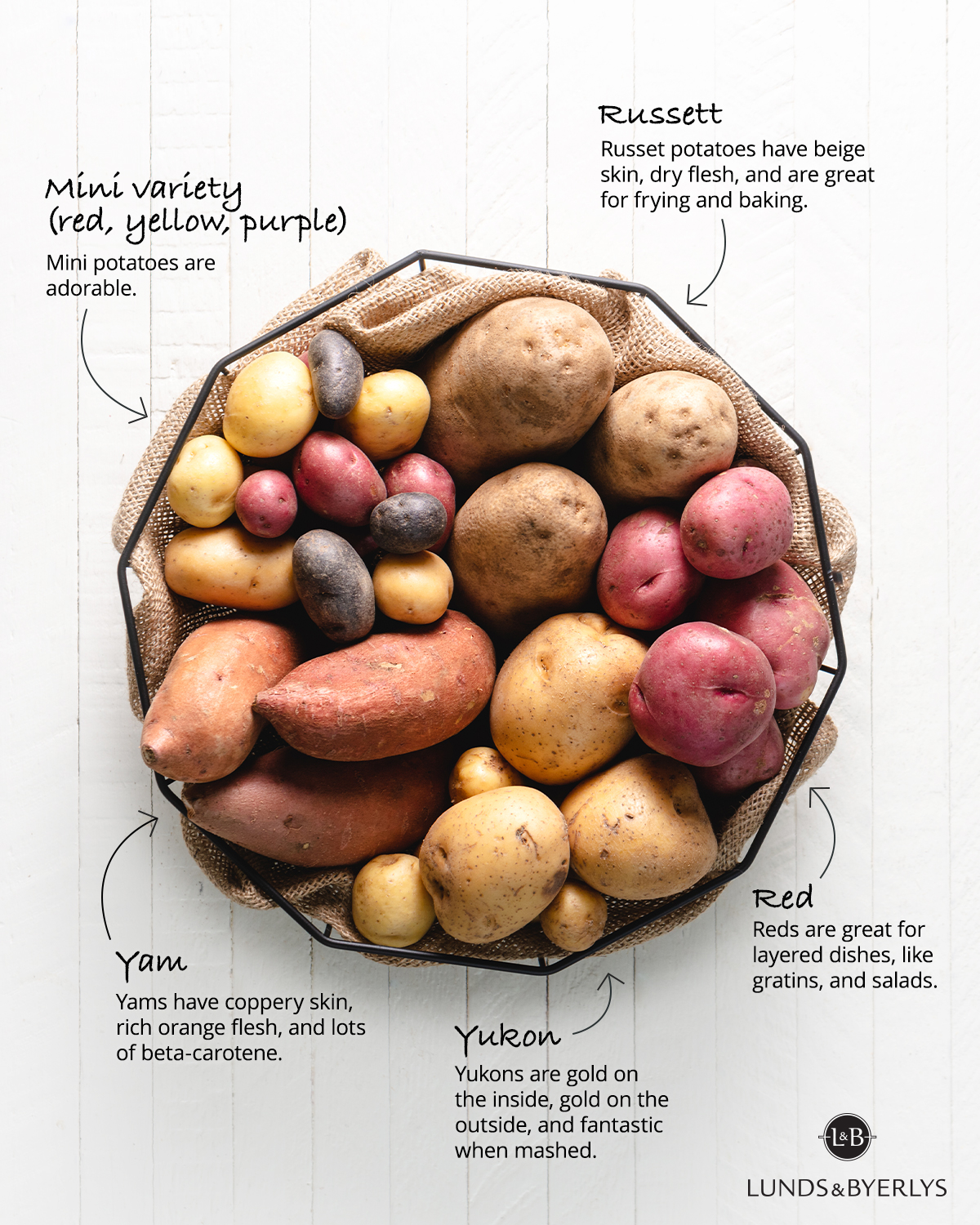- Accueil
- potato lot
- Russet Potatoes With all the traditional flavors, ingredients, and foods they love.
Russet Potatoes With all the traditional flavors, ingredients, and foods they love.
4.5 (151) · € 1.00 · En Stock
MacronutrientsOne baked medium russet potato with skin contains 168 calories, 5 grams of protein and 37 grams of carbohydrate, including 4 grams of fiber. This is 10 percent of the daily value for protein and 16 percent of the DV for fiber. The fiber and protein in the potato will help to fill you up so you eat fewer c
MacronutrientsOne baked medium russet potato with skin contains 168 calories, 5 grams of protein and 37 grams of carbohydrate, including 4 grams of fiber. This is 10 percent of the daily value for protein and 16 percent of the DV for fiber. The fiber and protein in the potato will help to fill you up so you eat fewer calories. Fiber may also help lower your risk for constipation, heart disease and diabetes.VitaminsConsuming a medium russet potato provides you with 0.6 milligrams of vitamin B-6, or 31 percent of the DV; 14.4 milligrams of vitamin C, or 24 percent of the DV; 2.3 milligrams of niacin, or 12 percent of the DV; 45 micrograms of folate, or 11 percent of the DV; 0.1 milligrams of thiamine, or 8 percent of the DV; and 0.1 milligrams of riboflavin, or 5 percent of the DV. Vitamin B-6, niacin, folate, thiamine and riboflavin are B vitamins, which turn the food you eat into energy, help your nervous system function properly and keep your hair, skin, eyes and liver healthy. Vitamin C acts as an antioxidant and is important for growing new tissues and repairing wounds.MineralsRusset potatoes are also a good source of minerals, with each medium potato providing 1.9 milligrams of iron, or 10 percent of the DV; 52 milligrams of magnesium, or 13 percent of the DV; 123 milligrams of phosphorus, or 12 percent of the DV; 0.6 milligrams of zinc, or 4 percent of the DV; and 31 milligrams of calcium, or 3 percent of the DV. Iron is essential for forming red blood cells and transporting oxygen around your body, and magnesium is needed for heart, nerve and immune system function.UsesYou can use russet potatoes to make baked potatoes, mashed potatoes, French fries or pureed soups. They are not good for making potato salads or soups with chunks of potatoes, as do not hold their shape well after boiling. Top your baked potatoes with salsa instead of sour cream and butter to limit the fat content and increase the amount of vitamins they contain. Mashing potatoes with low-fat sour cream or buttermilk instead of full-fat dairy products and baking French fries instead of frying them are also healthy, lower-fat ways to cook russet potatoes. If you make pureed potato soup, use chicken broth instead of cream for a healthier alternative.
Macronutrients
One baked medium russet potato with skin contains 168 calories, 5 grams of protein and 37 grams of carbohydrate, including 4 grams of fiber. This is 10 percent of the daily value for protein and 16 percent of the DV for fiber. The fiber and protein in the potato will help to fill you up so you eat fewer calories. Fiber may also help lower your risk for constipation, heart disease and diabetes.
Vitamins
Consuming a medium russet potato provides you with 0.6 milligrams of vitamin B-6, or 31 percent of the DV; 14.4 milligrams of vitamin C, or 24 percent of the DV; 2.3 milligrams of niacin, or 12 percent of the DV; 45 micrograms of folate, or 11 percent of the DV; 0.1 milligrams of thiamine, or 8 percent of the DV; and 0.1 milligrams of riboflavin, or 5 percent of the DV. Vitamin B-6, niacin, folate, thiamine and riboflavin are B vitamins, which turn the food you eat into energy, help your nervous system function properly and keep your hair, skin, eyes and liver healthy. Vitamin C acts as an antioxidant and is important for growing new tissues and repairing wounds.
Minerals
Russet potatoes are also a good source of minerals, with each medium potato providing 1.9 milligrams of iron, or 10 percent of the DV; 52 milligrams of magnesium, or 13 percent of the DV; 123 milligrams of phosphorus, or 12 percent of the DV; 0.6 milligrams of zinc, or 4 percent of the DV; and 31 milligrams of calcium, or 3 percent of the DV. Iron is essential for forming red blood cells and transporting oxygen around your body, and magnesium is needed for heart, nerve and immune system function.
Uses
You can use russet potatoes to make baked potatoes, mashed potatoes, French fries or pureed soups. They are not good for making potato salads or soups with chunks of potatoes, as do not hold their shape well after boiling. Top your baked potatoes with salsa instead of sour cream and butter to limit the fat content and increase the amount of vitamins they contain. Mashing potatoes with low-fat sour cream or buttermilk instead of full-fat dairy products and baking French fries instead of frying them are also healthy, lower-fat ways to cook russet potatoes. If you make pureed potato soup, use chicken broth instead of cream for a healthier alternative.

Product Detail Page

Cook's Illustrated - Russets are the classic choice for baked potatoes because they're a dry, floury variety, meaning they contain a relatively high amount (20 to 22 percent) of starch. The more
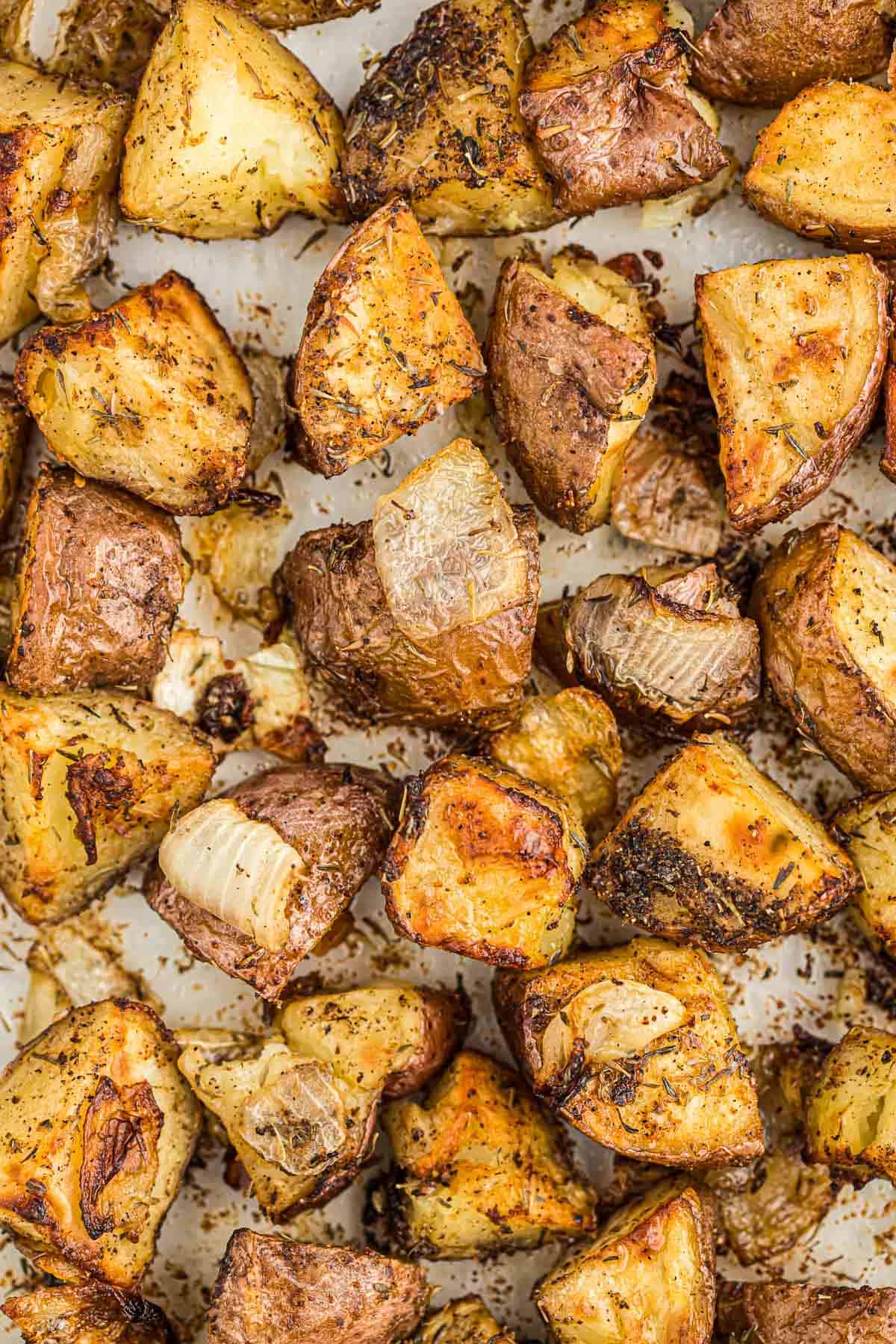
Easy Roasted Potatoes and Onions - Build Your Bite

Perfect Baked Potato Recipe

Are Potatoes Healthy? Benefits and Downsides
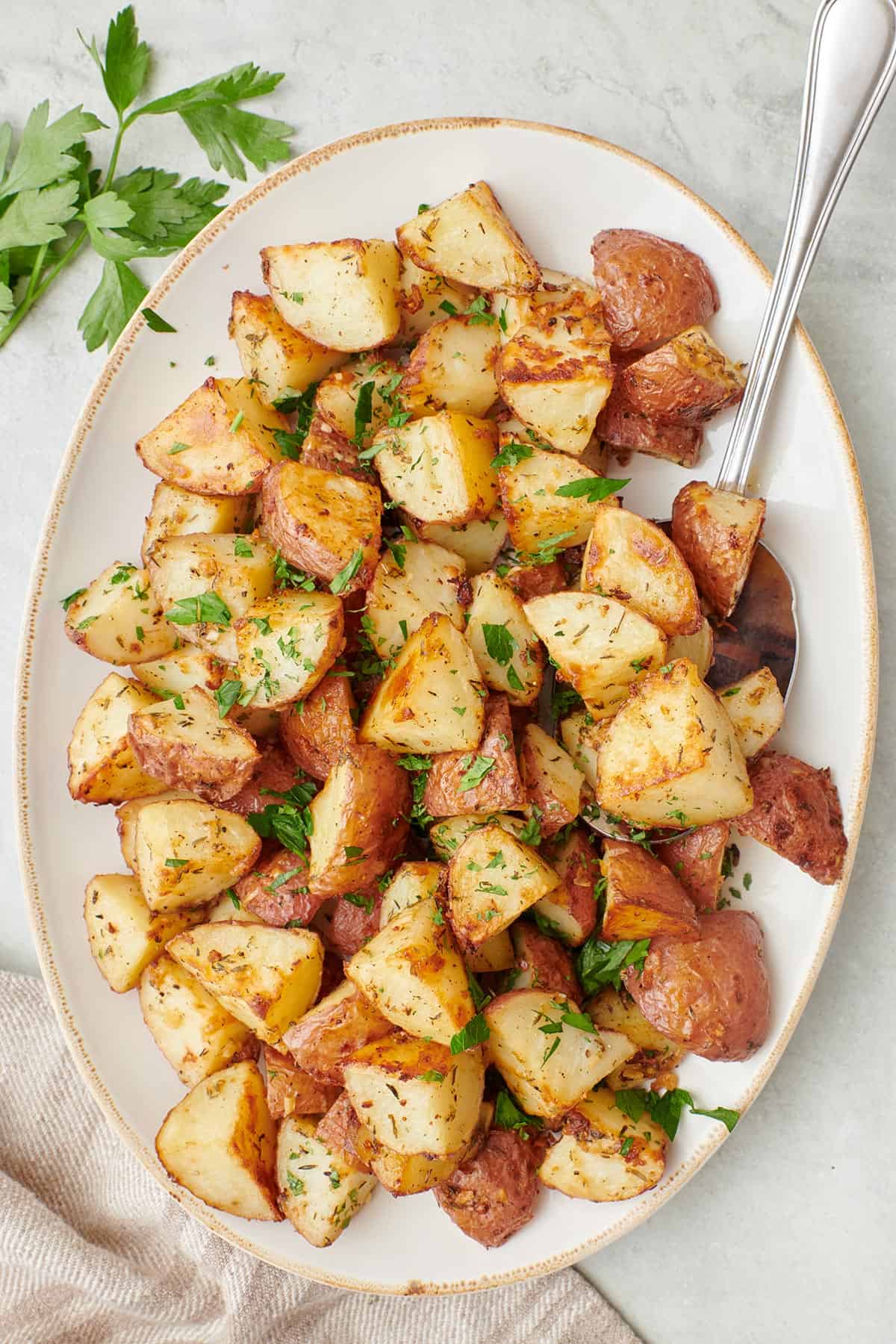
Garlic Roasted Potatoes - FeelGoodFoodie
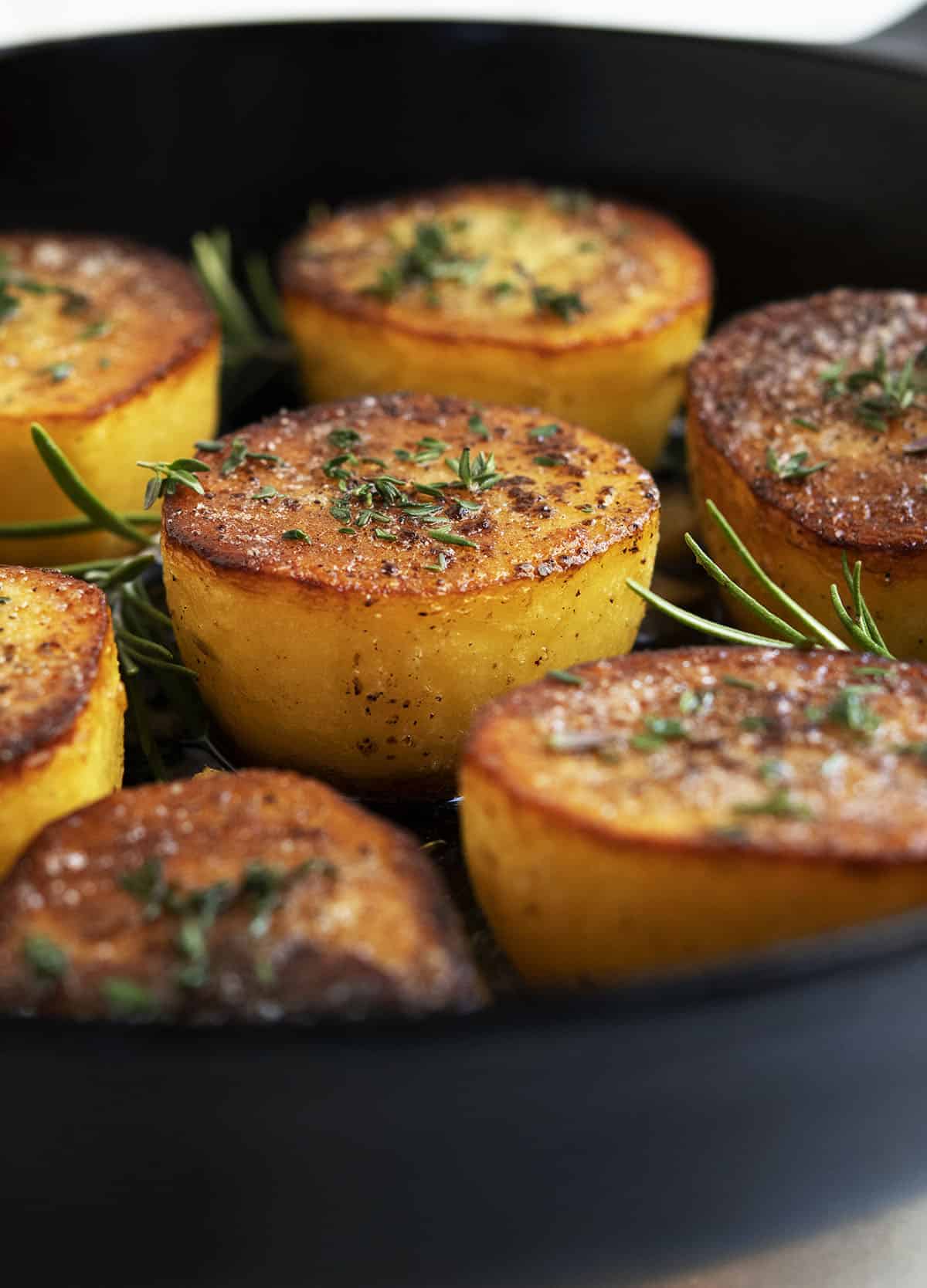
Fondant Potatoes (no soaking required!) - Pinch and Swirl

Russet Potato Recipe (Easy Video Instructions)
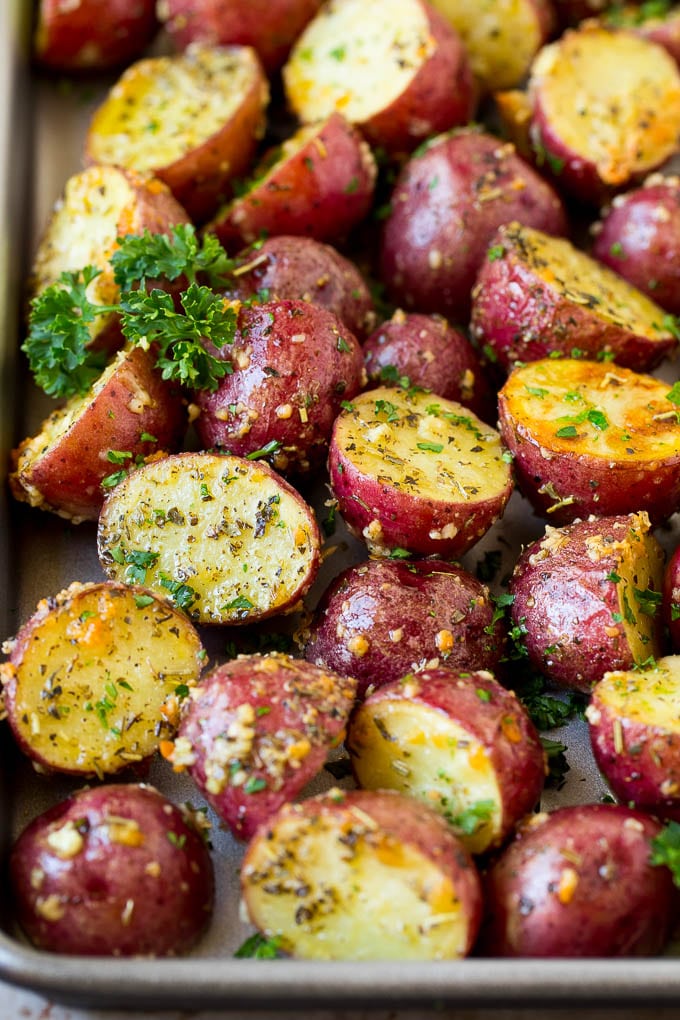
Roasted Red Potatoes - Dinner at the Zoo
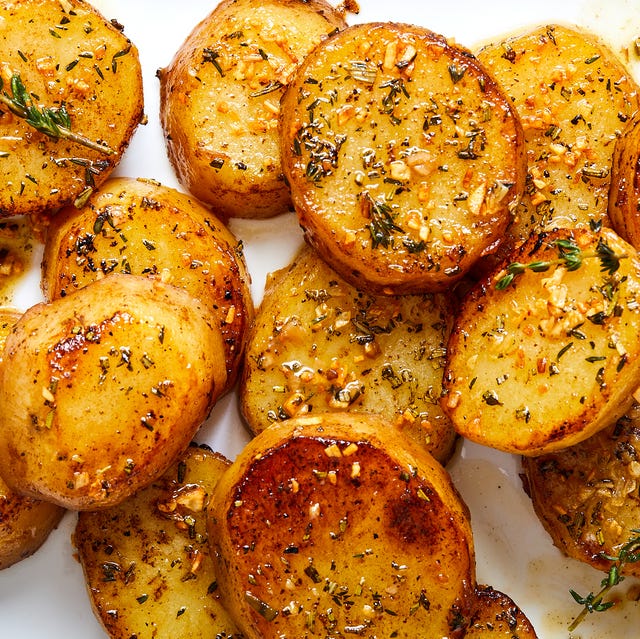
62 Best Potato Side Dish Recipes - Easy Potato Side Dishes
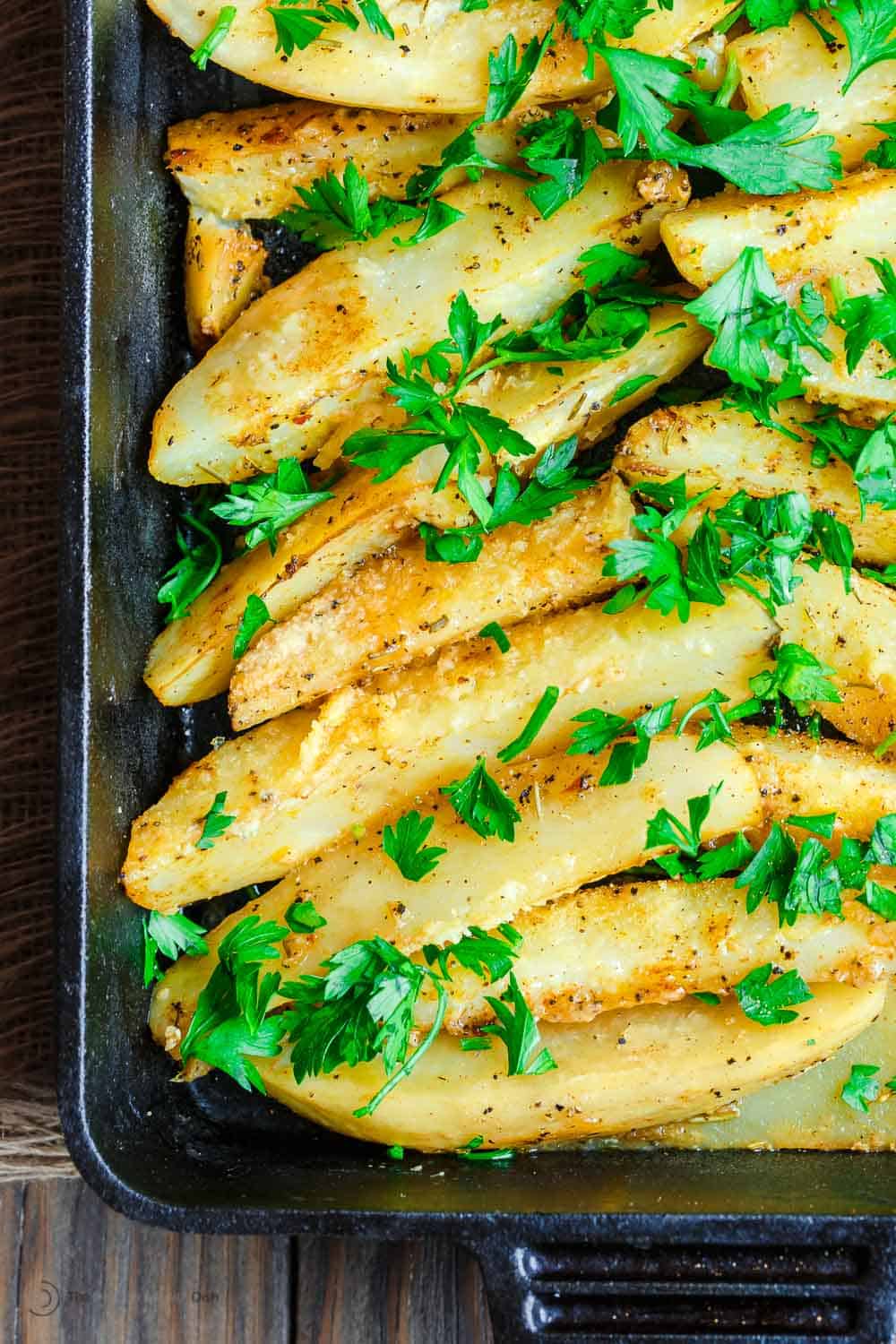
Greek Potatoes The Mediterranean Dish

Greek Lemon Potatoes Recipe

Roasted Red Potatoes –
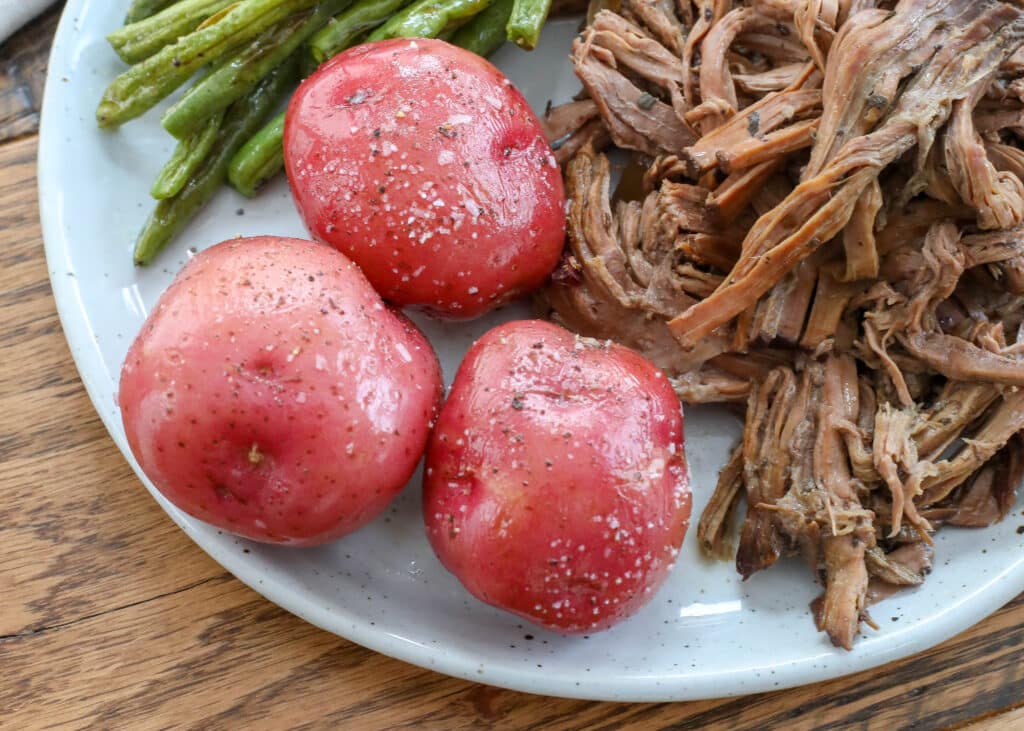
Boiled Baby Red Potatoes


